#michel serre
Photo
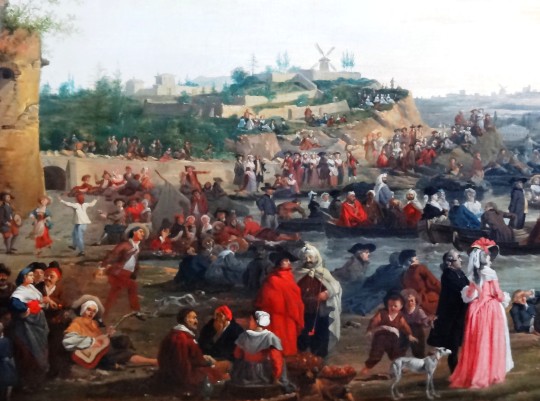



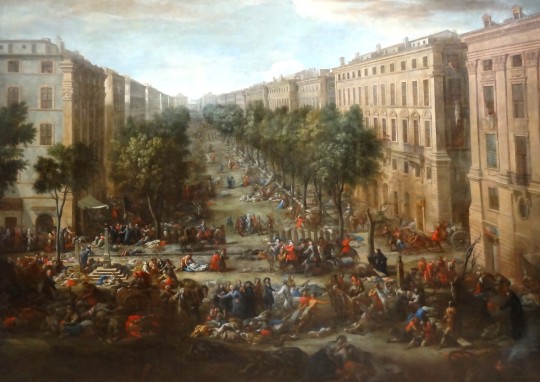
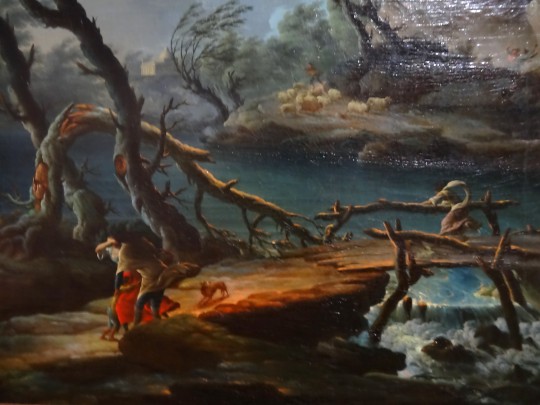
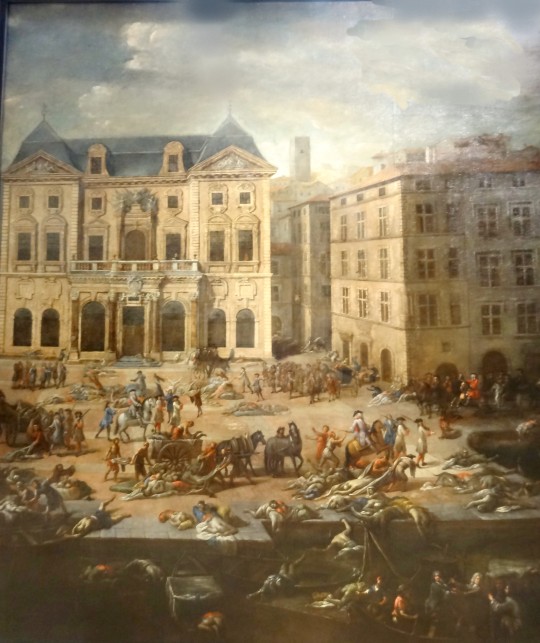

Nouveau retour à mon projet de présenter la plupart de mes 55500 photos (et des brouettes). Plus trop loin du présent….
2016. Marseille en été. Au Palais Longchamp, l’expo “Marseille au XVIIIème siècle”.
- Charles Eschard
- Philippe-Jacques de Loutherbourg
- idem
- Joseph Vernet
- Michel Serre
- Henry d'Arles
- Michel Serre
- Michel-François Dandré-Bardon
#souvenirs#musée des beaux-arts#palais longchamp#marseille au XVIIIe siècle#xviiie siècle#charles eschard#eschard#philippe-jacques de loutherbourg#marine#naufrage#peste#peste de marseille#peste de 1720#joseph vernet#michel serre#henry d'arles#michel-françois dandré-bardon#dandré-bardon
4 notes
·
View notes
Text

"Au rugby (...) tout le monde regarde l'équipe, personne ne regarde le ballon. Or l'important, c'est le ballon, c'est lui qui fait l'équipe."
Michel Serres
Gif BD :Calvin et Hobbes
Bon Match ! 🏉
#gif animé#bd#calvin et hobbes#rugby#match de rugby#rugby world cup#world cup 2023#humour#quotes#michel serres#funny pics#fidjie fidjie
62 notes
·
View notes
Photo
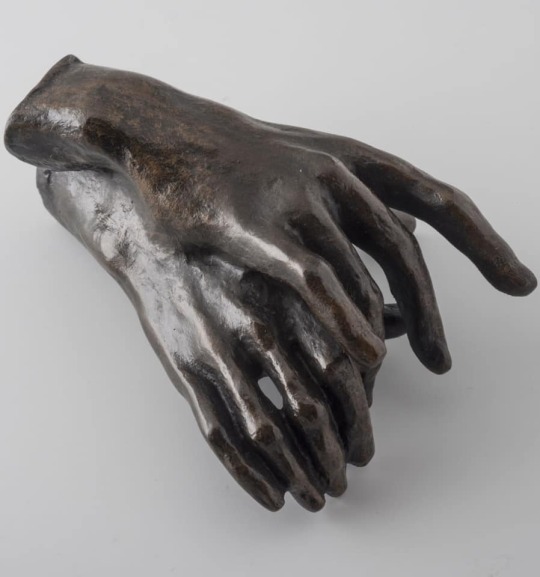
Oui au désir mais avec respect. Oui à la force mais avec douceur. Oui au corps, mais avec l'esprit. Oui à la prise, mais avec l'offrande, avec le partage. Oui à l'altérité, mais il faut un accord. Oui à la différence, mais il faut l'harmonie. Autrement c'est raté. Il faut avoir de la patience, accepter la longueur du travail que suppose l'approche de l'autre, qui est toujours très différent ou très différente. Être honnête, avoir de la probité, ne pas tricher, ne pas mentir. Être très attentif à l'autre. Se livrer au dialogue sans mensonge. Autrement c'est raté. Ne pas compter. S'ouvrir à l'autre. Souhaiter faire équipe avec l'autre. Autrement c'est raté.
Michel Serres
&
Auguste Rodin. Deux mains, 1909
192 notes
·
View notes
Text
What is man? An inhabitant of this strangeness, of this utopia, dedicated to miracles on the strange islands of language, in the sea of unleashed violence.
― Michel Serres
2 notes
·
View notes
Text
Finally day breaks over things that I can’t predict
Finally day breaks over things that I can’t predict, as I cannot predict myself. Only a stone, a celestial body, a fool can, sometimes, be predictable. Finally day breaks over a circumstantial, differentiated, risky, improbable world, as concrete, multicolored, unexpected, and, yes, beautiful as the one I see, feel, touch, admire.
— Michel Serres, in Italo Calvino’s from “Ilya Prigogine and Isabelle Stengers, La Nouvelle Alliance” in “The Written World and the Unwritten World: Essays. Translated by Ann Goldstein. (Mariner Books Classics, January 17, 2023)
16 notes
·
View notes
Text
Sono san Michele Arcangelo, e non lo sono: Ermafrodito. Ma perché, ripeto, coniugare il verbo essere? Sostituisco alla sostanza la sostituzione. Come ha fatto la mia lingua latina ad avere il genio di avvicinare le due parole, tra cui quella che si riferisce al cambiamento esprime più verità di quella che aspira alla stabilità? Non scrivo mai la sostanza di un libro, ma la sostituzione che lo precede, lo supplisce, lo maschera, lo traduce e lo tradisce. Capite bene l’inutilità del verbo essere, la vacuità dell’io sono. O allora, ripeto, mento e mi inganno. La verità sta in un centro fisso o ai bordi, verso i margini, nelle periferie eccentriche? Chi sono io? No, non sono una sostanza, ma una sostituzione incessantemente ricominciata. Ovvero: io non sono, parlando in termini assoluti.
Michel Serres
3 notes
·
View notes
Text
“i said that there were passages, that there were maps on maps, i have said ‘vertically,’ and i have said ‘and so forth.’ could there then be other spaces? could there then be other cartographies? yes. at least one other space, that incommensurable space travelled by what used to be called the imagination, and which is none other but that objective imaginary, constellated by symbols, charted by phantasms, scarcely variable in the course of time. a space in ruins, one that endures and is lost in the iterative time of history, traversed by coherency, closures, bridges, cycles; a space where he who remembers can circulate like the argonauts in the kingdom of gold, theseus in the labyrinth, orpheus in the underworld, moses and the chosen people in the desert of exodus, or the little girl in wonderland. an ordered, constraining, logical and compact space of initiatory, fabulous and extraordinary voyages. yet these voyages are vital, familiar, evocative and ordinary—the discovery of visited and unvisited lands of the unknown, of the unknowable, of the night, voyages to the heart of darkness, to the center of the earth.”
— michel serres & maria malanchuk, “jules verne’s strange journeys”
#my reading#michel serres#maria malanchuk#prose#words#me opening this on jstor: seems cool i hope its relevant to my paper#me 5 pages into this insane poetry:
2 notes
·
View notes
Text

«Estos chicos, pues, habitan lo virtual. Las ciencias cognitivas muestran que el uso de la red, la lectura de mensajes o el hecho de escribirlos con el pulgar, la consulta de Wikipedia o de Facebook, no excitan las mismas neuronas ni las mismas zonas corticales que el uso del libro, de la pizarra o del cuaderno. Pueden manipular diversas informaciones al mismo tiempo. No conocen, ni integran, ni sintetizan como nosotros, sus antecesores.
Ya no tienen la misma cabeza que nosotros.
Mediante el teléfono móvil acceden a todo el mundo; con el GPS, a todas partes; con internet, a todo el saber; habitan, en consecuencia, un espacio topológico de vecindades, mientras que nosotros vivíamos en un espacio métrico, referido a distancias.
Así, no habitan ya el mismo espacio. Sin que nos diéramos cuenta, ha nacido un nuevo ser humano, en un espacio de tiempo breve, el que nos separa de los años setenta.»
Michel Serres: Pulgarcita. Gedisa Editorial, págs. 22-23. Barcelona, 2014
TGO
@bocadosdefilosofia
@dies-irae-1
#michel serres#pulgarcita#pulgarcito#virtual#lo virtual#ciencias cognitivas#wikipedia#facebook#libro#pizarra#cuaderno#teléfono móvil#móvil#gps#internet#neuronas#redes neuronales#espacio#espacio topológico#tiempo#distancia#vecindades#ser humano#nuevo ser humano#digitalización#teo gómez otero
2 notes
·
View notes
Text
C'était mieux avant – Michel Serres
C’était mieux avant ! – Michel Serres
Auteur(s) : Michel Serres
Langue : Français
Edition : Manifeste Le Pommier ! 2017
Nombre de pages : 96 pagesFormat : Poche
Résumé.
Ce petit manifeste, écrit sur un coup de sang par l’auteur de Petite Poucette en colère contre tous les Grands Papas Ronchons qui empêchent de regarder devant nous avec espoir, a été tout d’abord offert à tout acheteur de…
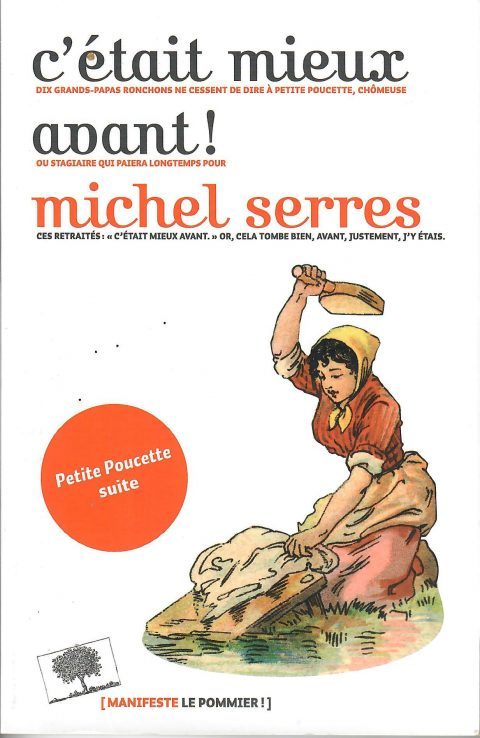
View On WordPress
#C&039;était mieux avant ! – Michel Serres#lecture et santé#lire#littérature#nouvelles#reflechir#romans
0 notes
Text
The archives always lie, language detests things. The limits of language are precisely that nothing archaic remains in it. "The authentic archives sleep in the earth and not in libraries"(serres) Being devoted to what has been said has reached its limits... the limits cannot be transcended. Every use of the transcendental are lies that condition everything, writing and saying, surely, avoid the necessary acts of living within the limits which nobody understood before, until we got close to nature which is hard and finite... most of human thought is magical thinking. “
0 notes
Photo

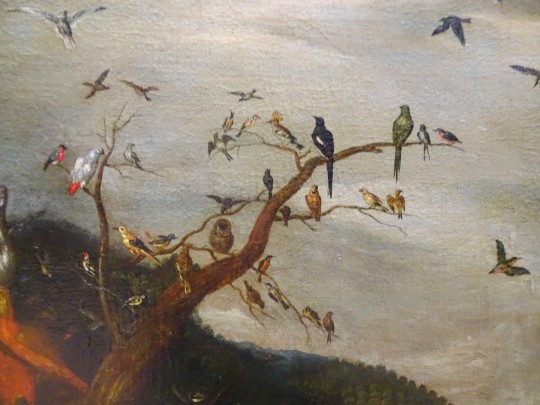

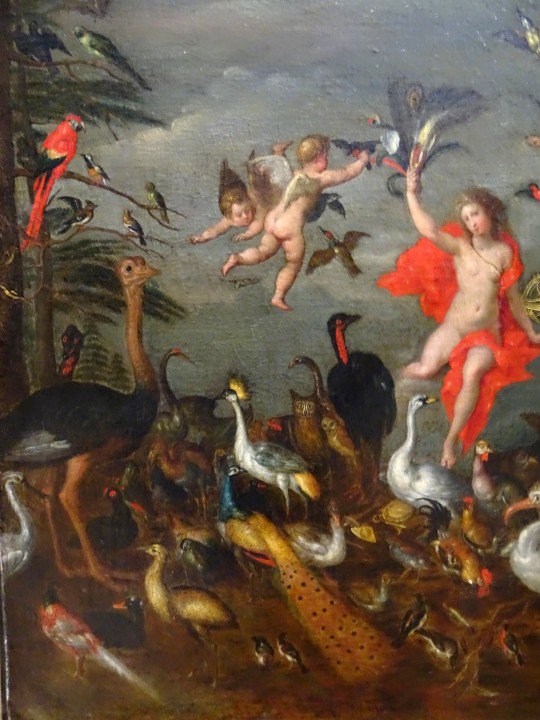



Marseille. Je suis retourné au Musée des Beaux-Arts après quelques années..
- Louis Finson : “La Madeleine en extase”
- les 3 suivantes : Jan Brueghel dit “Brueghel de Velours" : “L'Air”
- Michel Serre : “Vue de l'Hôtel de Ville pendant la Peste de 1720"
- Michel Serre : “Vue du Cours pendant la Peste de 1720"
- Jean-François de Troy : “'Le Chevalier Roze à la Tourette pendant la Peste de 1720″
#marseille#musée des beaux-arts#art#louis finson#sainte madeleine#extase#jan brueghe#brueghel de velours#oiseau#michel serre#peste#peste de marseille#peste de 1720#cours belsunce#jean-françois de troy#la tourett#chevalier roze
4 notes
·
View notes
Text
Pas l'temps je lis (août 2023)
Pas l’temps je lis est la chronique que je tiens dans le supplément culture qui paraît chaque samedi dans le quotidien Le Temps. Ci-dessous vous trouverez la liste des livres présentés dans les chroniques. Elle permettra aux abonné.es du Temps de les retouver facilement, offrira des pistes aux lecteur.ices du blog et sera utile aux éditeurs.trices qui verront ainsi quels livres ont été retenus et auront une idée du ton de la chronique.



05 août 2023 - Lectures facétieuses
Carnet de voyage autour de mon étang, Thierry Dedieu, Seuil Jeunesse - Album 6-9 ans
Le grand livre de l'inutile, Bruno Gibert, La Partie - Dès 7 ans
Gentils ou méchants? Julien Baer, L'Ecole des loisirs - Cartonné dès 3 ans
12 août 2023 - Des cartonnés à déguster
Imagier qui roule, qui glisse et qui vole. Imagier des outils, François Delebecque, Les Grandes personnes - 0-3 ans
Et si? Chris Haughton, Thierry Magnier - 0-3 ans
Les Animaux sauvages, Raphaëlle Giaux, Marguerite Courtieu, Albin Michel Jeunesse - 0-3 ans
19 août 2023 - C'est la rentrée !
Le grand jour de poussin, Claire Garralon, MeMo - Album dès 3 ans
Séraphine à l'école, Albertine Zullo, La Joie de lire - Album cartonné dès 18 mois
Mira à l'école des grands, Stina Klintberg, David Henson - Album dès 4 ans
26 août 2023 - Des retrouvailles tant attendues
La Course des mamans - Album dès 3-4 ans
La Disparition, Béatrice Serre, Thibaut Guittet - Album dès 8 ans
#Seuil Jeunesse#Thierry Dedieu#Bruno Gibert#La Partie#Les Grandes personnes#François Delebecque#Albin Michel Jeunesse#Claire Garralon#MeMo#La Joie de lire#Albertine Zullo#Albertine#Cambourakis#Béatrice Serre#Thibaut Guittet
0 notes
Text
more chapters from Biogea
Second Meditation on our Ways of Knowing
To amaze the crowd and get himself talked about, an artist wrapped bridges, buildings, statues in public squares. I see, I hear, I know the world wrapped with words, sentences, images. We put birds in cages, fish in aquariums, plants in pots, children in schools, adults in factories and offices, women under veils or in houses, God under the low crushing masses of stone in the churches of the countryside and the naves of the cathedrals, our love letters in envelopes, lastly, for settlement in full, all the things of the world in prison under words, locked up behind their bars. This so-called artist gives expression to this general wrapping.
I would like to listen to the things freed of these packages, the way they presented themselves before finding themselves named. Betelgeuse disappeared into the bag of its star naming; I only eat asparagus or carrots folded in bunches in the daily newspaper of their appellation; I see winds and rains below their satellite image map; your first name and your words hide your body from me and even, almost, your voice, your voice which, in its turn, names me. For thousands of years, we have been licking things with our tongues, covering and daubing them so as to appropriate things for ourselves. If language boils down to a convention, this convention took place between the speakers without consulting the thing named, become as a result the property of those who covered it in this way with their drawn or voiced productions. Malfeasance analyzes these acts of appropriation.
Thus every inert object, every living thing as well, sleeps under the covers of signs, a little in the way that, today, a thousand posters shouting messages and ugly riots of color drown, with their filthy flood, the landscapes, or better, exclude them from perception because the meaning, almost nil, of this false language and these base images forms an irresistible source of attraction to our neurons and eyes. This appropriation covers the world’s beauty with ugliness. How to estimate at their exact thickness the layers of media under which all things lie, thus multiply wrapped under writings, folded under printed matter, gagged under images, hidden under sounds, choked under languages, lost under a hundred screens? A screen, quite a confession: obstructing as much as revealing.
One intelligent instructor once told me that certain of his pupils, among the most gifted, seemed to be grieving from having suddenly entered into writing. Did they remember a world without words, before any learning of saying and reading? Were they weeping over a second loss? Of what use to us were certain neurons of the left occipito-temporal region of our brain before we re-employed them recently – less than three thousand years – for reading? The most expert specialists in cognitive science pose this question as well.
Burying things in a first glove of words, a second pocket of writing, a third screen of printed matter, a thousand names. Black boxes, reliquaries, prisons, our safes belonging to the fabulously wealthy owners of everything in the world, without exception. The way our right-handers help themselves to the straight line, orientation or the law, our language conventions cover things so as to appropriate them.
Freed from these pockets, these chests, I would like to see them reborn under their code proper name. And myself, aren’t I called Michel Serres by pure and simple convention? The coding of my DNA says my true proper name. For liberating the things, emancipating them, making us be reborn with them in this way, this is knowing them.
Gaping Mouth
At least the Romans took two or three days in order to rip up these fabrics, put holes in these pockets and hiding places, to break the padlocks, spread the lips of these faults and look the unworldly pit in the face, to hear the things as such, rid of these packages. They unglued these envelopes to better read the things, not to the letter, but unlettered! Forebears as ancient as their oblivion had invented gods in human form in order to cover, once again, the things with bodies, flesh, images and voices, meanings, the way we cover them with names or posters, with ideas, that is to say, with idols. Since they were afraid of the sea, they decked it out with an icon armed with a trident followed by a thousand young women whose fish tails veiled the waves with their charm; since they were distressed over the day and its light, they veiled it with the gentle name of Father; since lightning terrified them, they softened it with a Jupiter hurling spears. They hid the world by means of persons who resembled them, the way we hide it beneath screens where directors play the role of false gods.
No, these gods don’t say the sea or the trees, but are silent about them, if I dare say, hide them, plug them up, seal them off, distort them, prevent them from emitting; consequently, prevent us from hearing their rumbling; the gods transform their noise into pseudo-divine words, human in fact. Narcissistic, humans metamorphose the things of the world into women and men. We subjugate them; we politicize them beneath words and the best among us put them into equations. A little shadow of lie beneath the brilliance of truth.
The ancient Romans had the intelligence and daring to sweep aside that puppet population in cardboard décor for three days, to look these things, this world in the face through a black opening, and, through this gaping hole, listen directly to a frightful clamor. I admire their audacity in this and respect this festival. I confess it, I don’t know what is said there; but I wouldn’t want to die before understanding anything about it. Bring your ear near this abyss.
Mundus latet. The world is hidden. We hide the Biogea. Who sees it, yes, who hears it? Mundus patet: in those days, it opened, manifest, revealed itself, said itself, but we, Latins, no longer understand anything about the noise of the lead shot, latent, that emanates from this hole, about this tumult preparative to an earthquake, from which, patiently, the dazzling meaning of our languages emerged billions of years later. Mundus patet: I’ve decided that the dates August 24th, October 5th and November 8th shall become national holidays in Biogea. We’ll celebrate then the infernal hole, the source, the gaping mouth of every narrative in this book, the bottom of a horn of plenty that I’m trying to open today. For I’m searching for the meaning of this fundamental hubbub, in its nascent state. The Biogea rustles; it shouts on the nether side of our languages; without them; below them; outside them; beneath these lines, before the meaning of what I am saying gushes forth.
0 notes
Quote
Faut-il que nous soyons corrompus de façon répugnante, pour avoir cru, pendant des millénaires, que chutent les Anges par amour des filles belles, alors que le meurtre et la guerre passent pour héroïques et forts. Nos spectacles exaltent et multiplient revolvers et assassins. Tuer, oui, aimer, peu.
La vraie justice de Dieu m’oblige à confesser que les anges ne chutent que pour la puissance et la gloire, donc par tuerie, mais qu’ils demeurent angéliques en s’abreuvant d’amour.
Seule l’humilité, ce mot qui signifie, justement, la terre, les fait voler au-dessus d’elle. La tradition les nomme, alors, Séraphins… brûlants… suspendus…
Michel Serres, La légende des anges
0 notes
